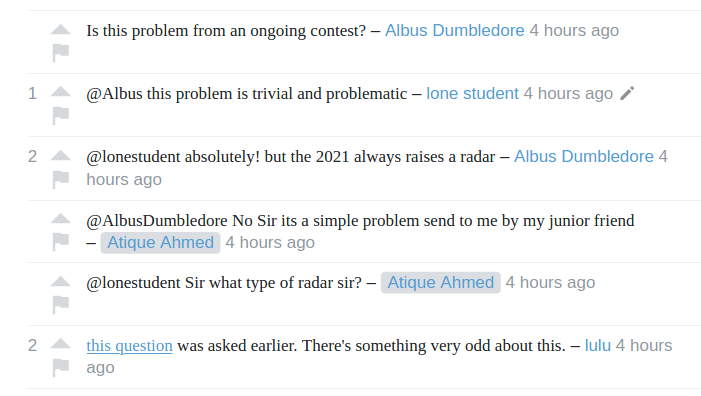https://math.stackexchange.com/questions/4094863/ Original title: Olympiad Geometry, How can I find values of c such that f(c) is even? I have gotten an equation of c !!
The OP was busy deleting the question while I was typing my comment:
I have also gotten an equation of c. They gave me antibiotic cream.
deleted by owner; someone left the page of the contest organzers: https://www.cemc.uwaterloo.ca/contests/dates.html
ORIGINAL: I have been noticing lots of questions that include the number 2021 as part of the statement. My impression has been that this makes it likely a contest question. Also, such questions NEVER include a source.
Today we have
So, rough estimates, what percentage questions with constant 2021 are important current contests (asking in April), how many are less crucial in some ways, how many are contests past submission deadline, .....
In particular, do people working up contest training problems use the year 2021 in such materials? How likely is it that one of our posts with the constant 2021 is training/prep?
$$ $$
$$ $$
About the lack of source: one time I pushed really hard with an OP, saying that the "friend" who gave him the problem did not exist. He then pointed out that there really was a friend and that the question was university entrance. So, cheating in a different way from what I expected.

